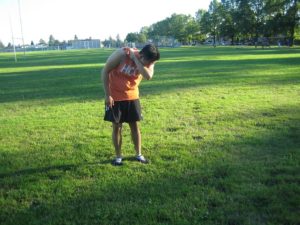A stuffed nose or nasal congestion is usually an indication of another health issue such as a sinus infection. In most instances, it can be triggered by common cold.
Indications of a stuffed nose
- Sinus pain
- Runny or congested nose
- Swollen nasal tissue
- Mucus buildup
There are home remedies that can help alleviate a stuffed nose especially if triggered by the common cold. Nevertheless, if the individual ends up with chronic or lasting congestion, it is best to seek medical care.
What are the causes?
A stuffed nose develops once the nose is congested and inflamed. Minor conditions are considered as the usual causes of the stuffiness such as the flu, common cold and sinus infections. The congestion typically improves within a week.

If the congestion persists longer than a week, it is often an indication of an underlying health condition. Some of the possible causes of long-term stuffiness include the following:
- Hay fever
- Allergies
- Chemical exposure
- Nasal polyps or benign tumors
- Deviated septum
- Exposure to environmental irritants
- Chronic sinus infections
A stuffed nose can also occur during pregnancy, usually at the end of the first trimester. The fluctuations in the level of hormones and increased supply of blood that occur during pregnancy can lead to congestion.
Remedies for a stuffed nose
There are home remedies that can help those who are suffering from a stuffed nose. A humidifier can be used to add moisture to the air which breaks up the mucus as well as soothe sore nasal passageways. Nevertheless, if an individual has asthma, a doctor should be consulted first before using a humidifier.
Elevating the head on cushions or pillows can also promote the flow of mucus out of the nasal passages.
A saline spray is considered safe to be used for all ages but infants might require an aspirator or nasal bulb after. An aspirator is utilized to remove any leftover mucus from the nose of the infant.
When to consult a doctor
Oftentimes, home remedies could not effectively alleviate a stuffed nose especially if the symptoms are triggered by an underlying health condition. In such instances, medical care is needed particularly if the condition causes pain and disrupts with daily activities.
If the following symptoms are present, a doctor should be consulted right away:
- Weakened immune system, emphysema or asthma
- Congestion that lasts longer than 10 days
- Greenish nasal drainage accompanied by fever and sinus pain
- Congestion with high fever that persisted more than 3 days
A doctor should be consulted right away if the individual previously sustained a head injury and has blood-streaked nasal drainage or continuous flow of clear discharge.
